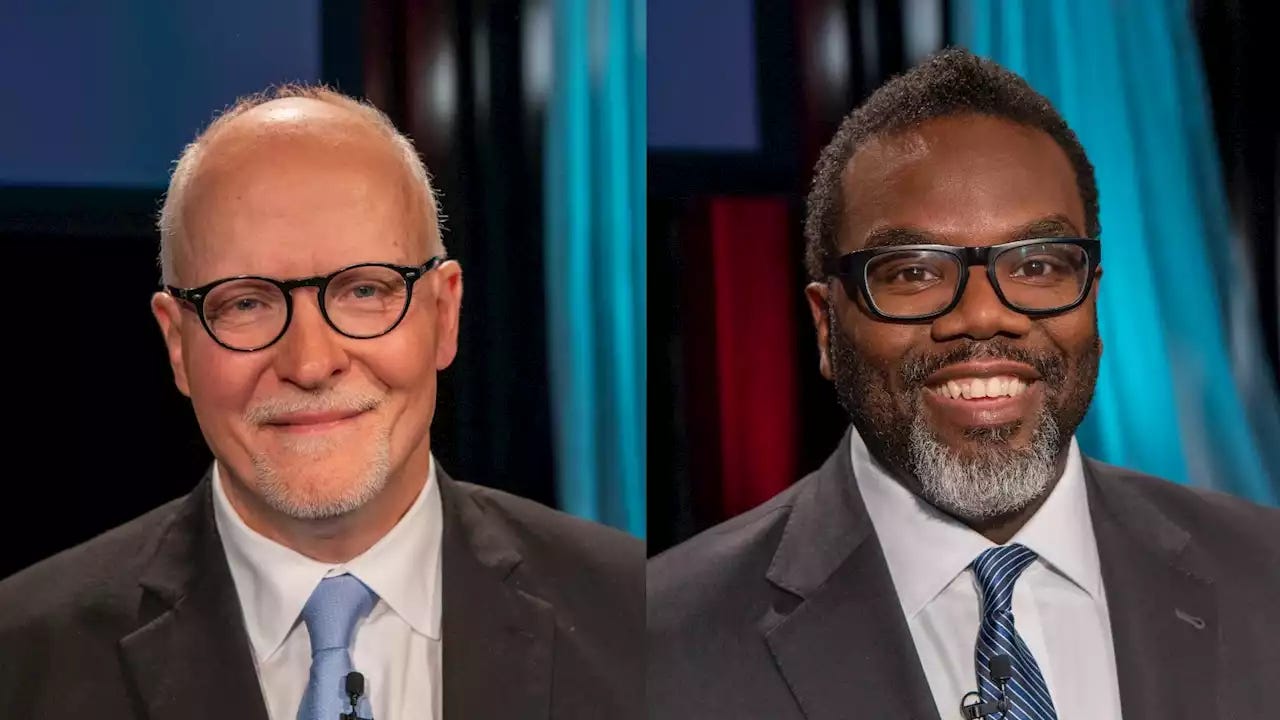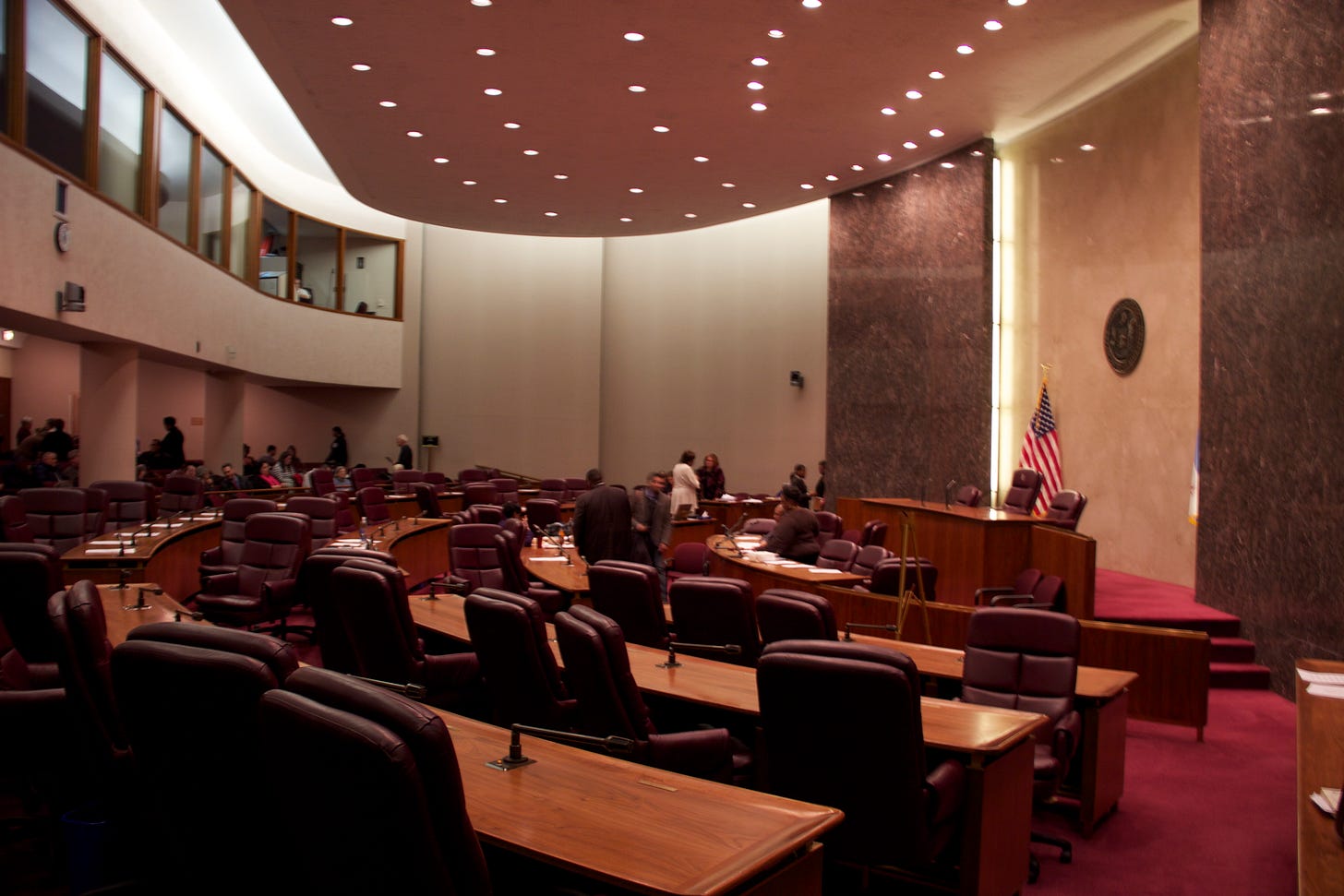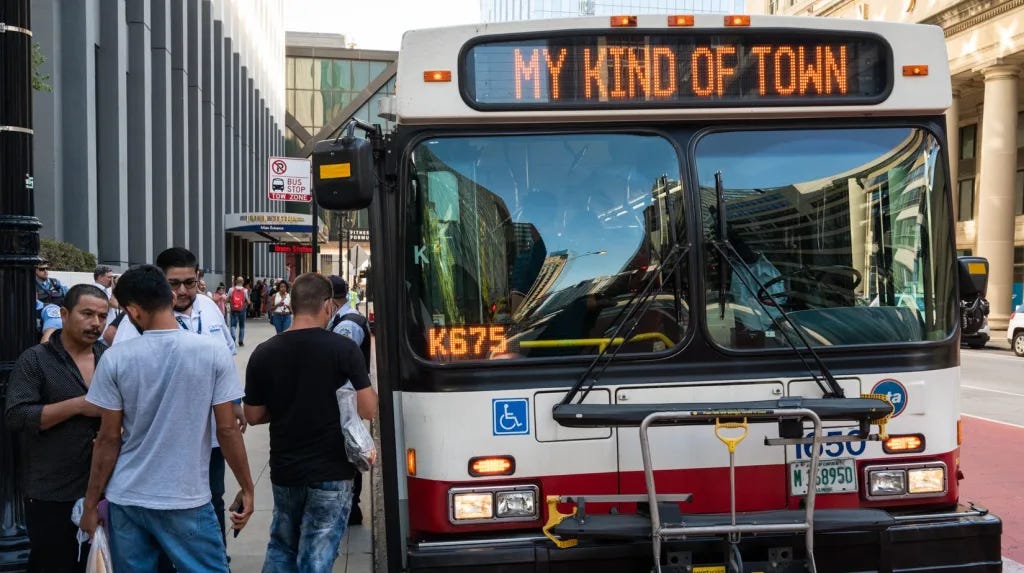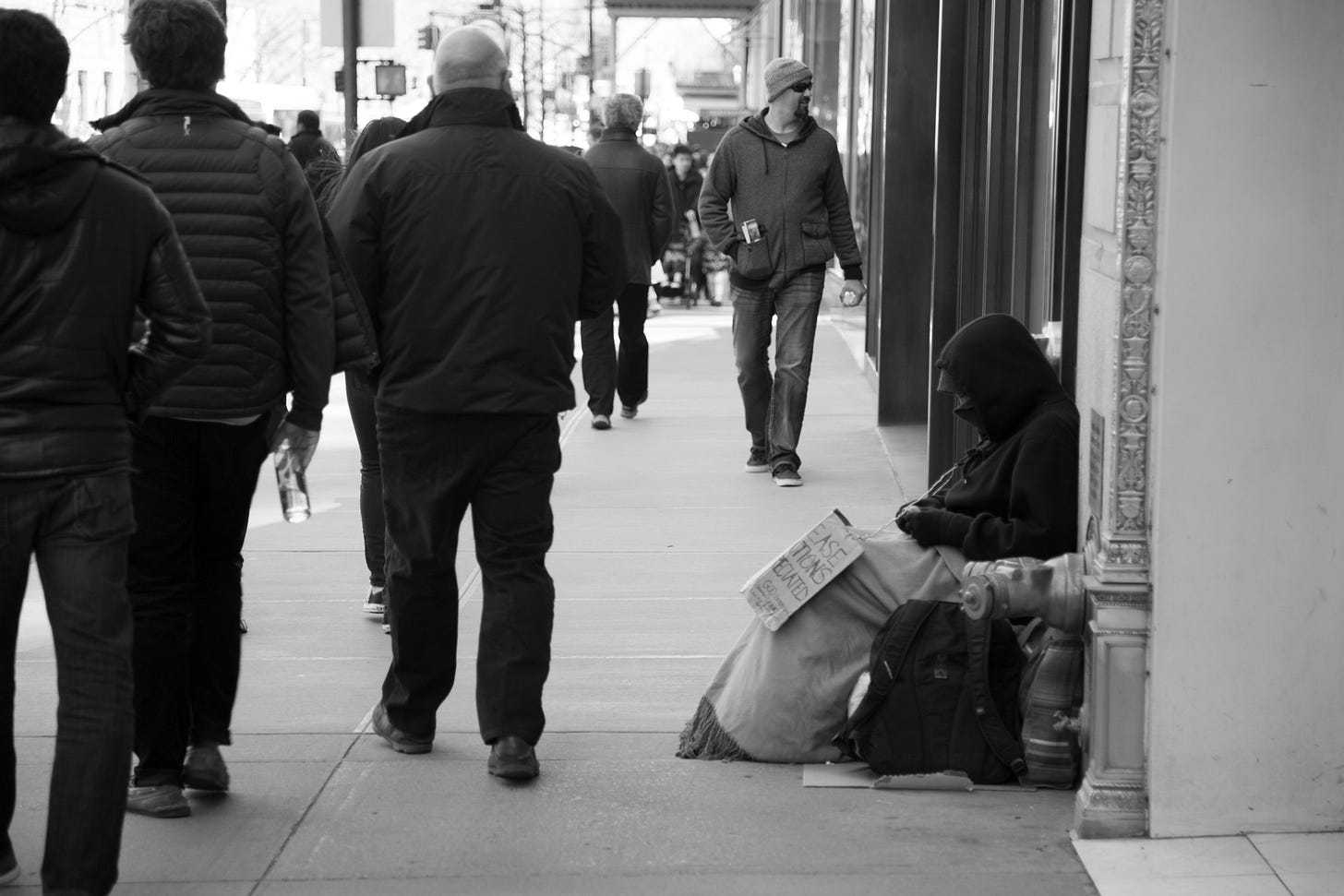Election season division calls for unity in the church, while advocates for city's homeless sound the alarm
As the mayoral election exposes racial tension in Chicago's electorate, the church must unify. Meanwhile, advocates for the city's unhoused people call for renewed efforts to address homelessness.
This election season, the church must display a unity more than skin deep
By Pastor Chris Butler
The upcoming mayoral election between Paul Vallas and Brandon Johnson has sparked a lot of heated debate and division within the city. As anyone who has been around Chicago politics for any amount of time might have predicted, the division is breaking primarily along racial lines.
For anyone who is not from Chicago (or who has been living under a rock in Chicago), Vallas is white and Johnson is black. In the short weeks since the February 28 election that propelled these two into the runoff, it seems that all of their differences – policing policy, economic policy, education policy, and more – are slowly being reinterpreted through this massively divisive and oversimplified lens. Vallas’ position on policing is the “White” position. Johnson’s position on public schools is the “Black” position.
This tension and division is not healthy for a city that will need to come together and work well beyond the 5th floor long after this election is settled.
In times of division, it is more important than ever for the church to be a force for unity. I believe that the church has a capacity to demonstrate that people can come together across the boundaries of race, background, and political beliefs in a spirit of love and reconciliation.
In the next few weeks as the election unfolds, the church in Chicago must be a model unity. We must highlight diversity within the broader community of believers and demonstrate our ability to act together and honor one another. The body of Christ is made up of people from all walks of life, and this diversity is a strength that should be celebrated. This is a time to intentionally seek out people and congregations from different racial and ethnic backgrounds, different parts of the city and even different sides of this election and find ways to fellowship together, to serve together and truly live into the Apostle’s Paul’s exhortation to the Ephesians to work hard to maintain the unity of the spirit in the bond of peace.
We recently demonstrated a capacity for this kind of work when a multi-ethnic, cross-community coalition of congregations successfully hosted a candidate forum in the first round of voting. Shout out to organizations like The Chicago Partnership, who partnered with the Chicago AND Campaign to create the forum and are constantly working to bring churches together.
In the coming weeks and when the next administration is sworn in, the church can play a role in promoting constructive dialogue between different communities. In a time when tensions are high and people are quick to make assumptions about those who hold differing political allegiances, the church can be a safe space for honest and respectful conversation. By hosting events and facilitating discussions that bring together people from different sides of the political spectrum, the church can help to build bridges and to break down barriers. The goal of these conversations would not be to persuade one another to switch support to a different candidate in this race, but rather to find places of commonality where we can work together as brothers and sisters no matter who wins the election.
The church must be internally united if she hopes to be a voice that advocates for justice in the public square. As followers of Christ, we are called to stand up for what is right and to work towards a more just and fair city. We are called to seek the peace of this city in which we find ourselves. But if we are divided by what divides the city, our prophetic witness is weakened tremendously.
Finally, I would suggest that the church cannot afford to forget that while we engage in civics and politics, this is not ultimate. We may have different views of who will be the best mayor of Chicago, but the vast majority of church goers and church leaders share the same view of efforts to offer practical support to those who are most affected by the problems in our city. Whether it’s providing food and shelter to those who are struggling, offering counseling and support to those who have been impacted by violence, or simply showing up and being present in communities that are hurting, the church has long been and must continue to be a source of hope and healing; even in a time of division. We are called to reach the city with the message of the gospel and the love of Jesus Christ.
Unity does not mean uniformity. There is a way to be faithful and support Paul Vallas for mayor. There is a way to be faithful and support Brandon Johnson for mayor. There is a way to be faithful and not support either candidate. But there is no way to be faithful and not support each other. The unity of the church and her ability to make long-term impacts in the city of Chicago are far more important than who is ultimately elected to serve the city for the next four years as mayor. So, my plea to the church is this: vigorously support your candidate if you have one. But don’t fall out of love with the brothers and sisters who chose a different path in the election.
The Round Up
Here are the stories that caught our eyes this week and what they mean for the weeks ahead.
Black voters in Chicago look for a candidate and a path forward on fighting crime
The remaining candidates in the mayoral race are appealing to black voters in Chicago with very different messages.
Paul Vallas, a former Chicago Public Schools executive, has waged a pro-police campaign.
Meanwhile, County Commissioner Brandon Johnson campaigned on an agenda looking at crime as a problem that would not only be solved by turning to traditional policing strategies.
With new mayor on horizon, aldermen seek more power on City Council
Several Chicago aldermen are considering a rule changes they contend would make the City Council more independent of the mayor.
Led by committee and caucus chairs, including Scott Waguespack, Michelle Harris, Jason Ervin and Gilbert Villegas, 36th, the group says that a majority of the council supports the changes.
Proposals include the creation of an office aimed at analyzing legislation the creation of several new committees.
The City Council can select its own committee chairs and members but has given that power to the mayor many times in recent years.
Chicago City Council fiercely debates migrants
A heated dispute about race during at this week’s Chicago City Council meeting broke out over a vote on a $20 million allocation from the state for migrant services.
Up to this point, Chicago has paid the bill itself, with some federal aid.
The routine vote turned instead into a fierce debate between Black and Latino aldermen, which began when Ald. Jeanette Taylor said the funds would indicate that the council cared more about Latino migrants than homeless and indigent constituents in her predominantly Black community.
Newsclips
Pritzker signs bill mandating paid leave for nearly all workers in Illinois
Shedd Aquarium could lose millions because of NASCAR race, officials worry as they ask for answers
‘The CTA is their last resort’: A night out with the people helping homeless riders
Chicago’s Health Department does little to deter repeat polluters, report finds
City Council reorganization move by Lightfoot allies called ploy to keep themselves in power
As SNAP recipients see reduction in funds, Chicago residents make adjustments: ‘I make do’
Is decision day finally near for third Chicago airport?
Chicago election results: Final counts for aldermen are in; see who is going to a runoff
25th Ward alderman Byron Sigcho-Lopez's press conference crashed by defeated opponent
Mayoral race highlights
CBS Chicago to host mayoral debate
Ja’Mal Green endorses Vallas in runoff; Kwame Raoul first statewide official to back Johnson
Bernie Sanders endorses Brandon Johnson in Chicago mayor’s race
Unhoused Chicagoans need an advocate in the mayor’s office
By Mike Vick
Advocates for the homeless have raised the alarm that a shortage of beds at homeless shelters, coupled with moves by outgoing Chicago Mayor Lori Lightfoot to clear unhoused people from O’Hare Airport could lead to an increase in people sleeping on CTA trains as a last resort.
The pandemic upended the shelter system, and the system has not recovered since. Though the city has about 3,000 shelter beds, the system that manages the shelters put the total number of people actively using the system at close to four times that number.
A wave of migrants sent to Chicago as part of a political stunt by the governors of Texas and Florida have also contributed to the problem, overwhelming already taxed shelters.
The problem has even caught the attention of the two men vying for mayor in next month’s runoff election.
Paul Vallas has called for the city to take over abandoned apartment buildings to renovate them and turn them over to housing advocates, in part to use them for unhoused people.
Meanwhile, Brandon Johnson has proposed a “mansion tax”, a 2.65 percent transfer tax on homes selling for $1 million or higher, which would be used to fund efforts to curb homelessness in Chicago.
While a variety of approaches to homelessness have been tried over the years, everything from traditional homeless shelters to pass-the-buck measures like one-way bus tickets to other cities, a growing number of advocates for unhoused people have come to favor the housing first model.
According to the National Alliance to End Homelessness, housing first is a “homeless assistance approach that prioritizes providing permanent housing to people experiencing homelessness,” thus addressing the root problem, namely the lack of housing, rather than ancillary problems like drug abuse treatment.
Many housing first advocates point out that the total cost of social services for the unhoused population is much greater than the cost of simply housing them.
Whatever the approach chosen, Chicago’s incoming mayor, whoever he ends up being, will need to tackle the issue of homelessness head on. Shifting unhoused people from one bad situation to another is no solution to the problem.
If you would like to help, Chicago has many charities that aid the city’s unhoused population, among them the Night Ministry, the Chicago Coalition for the Homeless, All Chicago, and Chicago Hopes for Kids.
Do you have ideas for future Civic Update stories or want to contribute a story yourself? Email our editor by clicking the button below!









